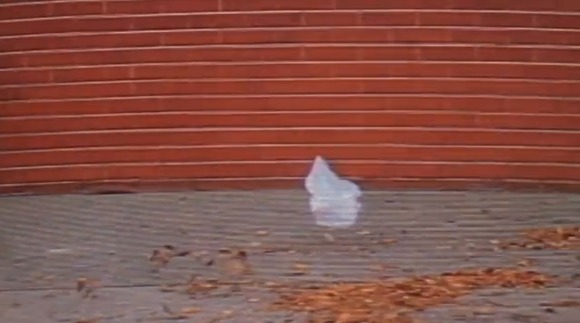It’s kind of hard to parse my thoughts on Birdman, they’re big, messy and they get all over the place. If you clicked on this expecting Birdman, don’t worry I get to it.
Cinema is the composite art. It fuses together, at it’s most basic level, photography and writing to create stories and ideas that could not be expressed in any other way. However, most films incorporate other media including sound, acting, reportage, interviewing, and directing (of actors). It is this that the director is in charge of. It is the director’s job to make it feel as if these elements could have been born of one creative intelligence, although it rarely ever is. The best directors were able to be so distinctive in their management of these desperate elements that the auteur theorists, mistakenly, identified the director not as the manager of the text, but as it’s author. It’s become clear in the past half century that that simplified idea that there can even be an author of a film is simply absurd.
To be fair you can see why the auteurists came to their theories. Up until that point, film was the only medium that operated under this model. Painting had an author, so did novels and poetry (although I highly doubt that oral epics like Beowulf had a single author or that Homer is responsible for 100% the Odyssey). The main knock against cinema as a true art form was that it didn’t have a single attributable author, thus, in the eyes of high culture, it was not art. Thus those who wished to make self conscious art cinema, which was arguably born with the French New Wave, had to legitimize their medium to the art crowd, and thus the auteur theory was born.

Look how artistic he is. Can you feel the ART?!
Which brings me to Alejandro González Iñárritu or as I’m going to call him, AGI.
AGI was part of this wave of Mexican filmmakers that began to make themselves known on the international film scene during the 21st century. Along with Alfonzo Cuaron, Guillermo Del Toro, and Carlos Reygadas, these Mexican filmmakers completely failed to make Mexico a filmmaking hot spot in the last 14 years, mostly because, except for Reygadas, they mostly make films in English.
An interesting side quality about these directors is that they seem to have a better grasp of genre filmmaking than others. Del Toro is the most obvious about this, with fanboyism that can threaten to smother out the emotional core of his films. But Cuaron seems to love dark science fiction and fantasy (I credit him with saving the tone of the Harry Potter films) and even Reygadas finds a place for the supernatural in his most recent film.
AGI on the other hand, seemed to have no time for genre when he first broke on to the scene. In his first three films: Amores Perros, 21 Grams, and Babel, he makes it abundantly clear that his favorite moment in all of cinema is that moment at the end of Three Colors: Red. If you’ve seen it, you know what I’m talking about. AGI, however, has none of the lightness of touch that Kieslowski did and as such Babel, at least, is terrible. But, that’s my opinion now. At the time I kinda liked Babel, or rather convinced myself that I found it interesting. Only now, looking back do I see the uninteresting and undeveloped characters, the dismissal of any kind of dramatic structure in the service of an uninteresting and obvious theme. (It basically boils down to “People speak different languages, and that means it’s hard to communicate,” which is about as self evident as “the sky is blue”).
Then things got weird. Or rather, I got wise to his game.
After Babel, AGI split with his screenwriting partner Guillermo Arriaga, who, was responsible for reigning his more…insane and self indulgent parts of AGI’s mind. At least Arriaga knows (or knew, I heard some pretty terrible things about his recent stuff, although Three Burials was very good) how to dramatically structure a story. So he decided that what he really wants to do is explore 50 something dude’s problems. Which everyone knows is so original and needed. Obviously.
The sad thing is that there is some stuff in Birdman that really works well, and this is where auterism leads us astray. The film is shot beautifully, the acting is virtuosic, the set design looks both real and heightened in a way that calls back to the theatrical heart of the story. The movie has only gotten where it is today by the work of people other than the director and the screenwriters. This is, so it seems, a rebuke of auteur theory. Can a movie success despite a director with bad tendencies? Clearly, to some extent it can. But I still believe, because I just don’t think you can hide the structural rot.
That story, however is a damn mess. The plot totally loses its momentum about every 20 minutes to basically go into capital-A “Audition” scenes between two people (usually ending in them making out, because no one knows how to end a dramatic scene apparently. The characters are all stock types, the female characters being especially criminally underdeveloped (the burnout daugher, the ex-wife, the girlfriend who wants a baby, the mean-y pants critic). Even in all of this, AGI and his screenwriters, all four of them (!), can’t seem to find a cogent point to hang their movie on. Is it a critique of modern social media? Is it an angry screed against critics? Is it about modern masculinity? Does it make any attempt to make a statement about art? Not really.
The only theme I can really pull out is this: The moral superiority of the straight old man. In the end, Riggin gets everything he wants, his relationship with his ex-wife is fixed, he is hailed as a genius in the press, he has reconciled with his daughter and he can literally fly. Who knew blowing off your nose could be so profitable for your personal and professional life?
And this won Best Picture and Best Original Screenplay.
Well, on Oscar night, as I cried into my “Congratulations Inherent Vice” banner, I suddenly remembered the other movie that I felt exactly like.

omg a bag its so artistic whata beautiful statement art its so beautiful i hate mywife
American Beauty made me incredibly mad when I saw it. Mostly because everyone remembers it so well, and I can see exactly why they like it. And it’s not a flattering portrait. I’m willing to bet that the people who love American Beauty are white men who probably tend towards the Conservative side. It seems to take, as it’s starting point, that a man who makes less than his wife is a impotent shell of a man. Even though I’m pretty sure Alan Ball and Sam Mendes (two people who have also proved themselves to be masters of yell-y psudo-art cinema) intended American Beauty to be a tragedy, it’s more of a story about how Lester regains his manhood, and thus destroys his family and himself. He is redeemed by passively falling out of his dead end job and by showing no drive other than to throw it in a teenager. You know, like a kid.
Thats why I call Birdman, American Beauty and others like it “Dorm Room Movies.” You know the type, they’re the kind of things that tend to show up in every guy’s dorm room. Dorm Room Movies tend to follow a few basic themes. For one, they’re always about men, and whatever women are in there are either antagonists or there as part of a severe case of the Not Gays. For another, they’re usually pretty violent and/or sexual, because that’s what makes a movie adult. They’re usually from the 90s or 2000s, and most importantly, they tend to have a subtly conservative bent to them. This last point, I think, is the most important. These movies are usually about men reclaiming their “rightful” place in the world or some other underlying conservative issue. I’m not saying that you’ll find the likes of God’s Not Dead or Left Behind in many DRM collections (outside of Patrick Henry) but I think the popularity of these movies points to a greater political groundswell of atheist or at least secular conservatism, especially among the younger generation.
Unfortunately, in the past couple months I’ve seen more and more evidence that we’ll probably see young, white men more seduced by conservative and libertarian ideals. They see the world changing to accommodate women, LGBT people, ethnic minorities, and other traditionally historically marginalized groups and they don’t like it. They blame their shortcomings on feminists or “SJWs” (to use their terms). They try to create a fiction around themselves where they are the downtrodden heroes regaining what is rightfully theirs, even as they are excessively catered to to begin with. Their movie heroes make this journey in miniature: Batman beats up the poor and mentally ill and spies on regular citizens rather than addressing the socio-economic conditions that create them (in the first movie, actually demolishing a symbol of public infrastructure), Lester Burnham defies his wife and daughter, seduces a teenager, gets a fancy car and works out, Andy Dufresne’s cheating wife dies, he is changed for the better in prison for his crimes, and he escapes a better and richer man. All of these are men who valiantly flight to assert their natural state in the world, their privilege that the world failed to honor, so they got mad and fought back.
Being a Dorm Room Movie doesn’t make it a bad movie and it doesn’t make you a bad person if you like them. However, I think their popularity is evidence of a terrifying trend in cinephile culture. Conservatism is the death of art and a culture dictated by the politically conservative is doomed to mediocrity.
Birdman is that, it puts forward a conservative worldview that also validates the moral superiority of artists, and it’s no wonder it went over so well with The Academy. Especially since it was up against stories about the very young (Boyhood, Whiplash), the effeminate (The Grand Budapest Hotel), sexual minorities (The Imitation Game), and ethnic minorities (Selma). I guess American Sniper was there technically, but come on.
Honestly, it’s the perfect movie to be declared the movie of 2014. 2014 was a year of cultural turmoil, of near constant outrage, and of indignation. I don’t think this is a bad thing. But what better way for The Academy, literally the Hollywood establishment, and the overwhelmingly white, old, male body awarded the conservative male movie about an artist who defies the critics and everyone else in his life to make ART, MAN! I’m not surprised, just disappointed.

I agree with everything you said especially about the female characters